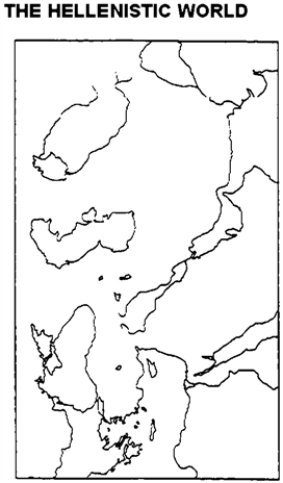Exam 3: The Greeks: From Myth to Reason
Exam 1: The Ancient Near East: the First Civilizations82 Questions
Exam 2: The Hebrews: a New View of God and the Individual76 Questions
Exam 3: The Greeks: From Myth to Reason95 Questions
Exam 4: Rome: From City-State to World Empire92 Questions
Exam 5: Early Christianity: a World Religion79 Questions
Exam 6: The Rise of Europe: Fusion of Classical,christian,and Germanic Traditions89 Questions
Exam 7: The Flowering and Dissolution of Medieval Civilization84 Questions
Exam 8: Transition to the Modern Age: Renaissance and Reformation91 Questions
Exam 9: Political and Economic Transformation: National States, overseas Expansion, commercial Revolution84 Questions
Exam 10: Intellectual Transformation: the Scientific Revolution and the Age of Enlightenment85 Questions
Exam 11: The Era of the French Revolution: Affirmation of Liberty and Equality92 Questions
Exam 12: The Industrial Revolution: the Transformation of Society78 Questions
Exam 13: Thought and Culture in the Early Nineteenth Century82 Questions
Exam 14: Surge of Liberalism and Nationalism: Revolution, counterrevolution, and Unification76 Questions
Exam 15: Thought and Culture in the Mid-Nineteenth Century: Realism, positivism, darwinism, and Social Criticism86 Questions
Exam 16: Europe in the Late Nineteenth Century: Modernization, nationalism, imperialism93 Questions
Exam 17: Modern Consciousness: New Views of Nature, human Nature, and the Arts77 Questions
Exam 18: World War I: the West in Despair83 Questions
Exam 19: An Era of Totalitarianism88 Questions
Exam 20: World War II: Western Civilization in the Balance56 Questions
Exam 21: Europe After World War II: Recovery and Realignment, 1945-198959 Questions
Exam 22: The Troubled Present55 Questions
Select questions type
Please define the following key terms. Show Who? What? Where? When? Why Important?
-Ionia
(Short Answer)
4.9/5  (35)
(35)
Please use this outline map of the Hellenistic world to answer the question(s).
 -Perhaps the greatest legacy of the Greeks to Western Civilization is intellectual.Discuss this statement.
-Perhaps the greatest legacy of the Greeks to Western Civilization is intellectual.Discuss this statement.
(Essay)
4.8/5  (28)
(28)
The Hellenistic thinker that taught that people should reject civic life
(Multiple Choice)
4.9/5  (44)
(44)
Please use this outline map of the Hellenistic world to answer the question(s).
 -Discuss why there is continuing fascination with the concepts found in Plato's The Republic.
-Discuss why there is continuing fascination with the concepts found in Plato's The Republic.
(Essay)
4.9/5  (37)
(37)
Athenian democracy achieved its height in the middle of the fifth century B.C.under the leadership of which of the following?
(Multiple Choice)
4.7/5  (37)
(37)
In the fifth century B.C.,the Greeks viewed their ____ as the only avenue to the good life.
(Multiple Choice)
4.8/5  (31)
(31)
Please define the following key terms. Show Who? What? Where? When? Why Important?
-Logos
(Essay)
4.8/5  (36)
(36)
Please define the following key terms. Show Who? What? Where? When? Why Important?
-Aristotle
(Not Answered)
This question doesn't have any answer yet
Why did Athens become the center of Greek intellectual,artistic,and philosophical advancements?
(Short Answer)
4.9/5  (41)
(41)
While democracy is often associated with ancient Greece,how important was it to the ancient Greeks? How did this version of democracy compare with modern democracy?
(Essay)
4.9/5  (31)
(31)
Please define the following key terms. Show Who? What? Where? When? Why Important?
-Democritus
(Essay)
4.8/5  (25)
(25)
Which of the following statements describes Anaximander's work with the Ionian school of philosophy?
(Multiple Choice)
4.9/5  (33)
(33)
Showing 21 - 40 of 95
Filters
- Essay(0)
- Multiple Choice(0)
- Short Answer(0)
- True False(0)
- Matching(0)